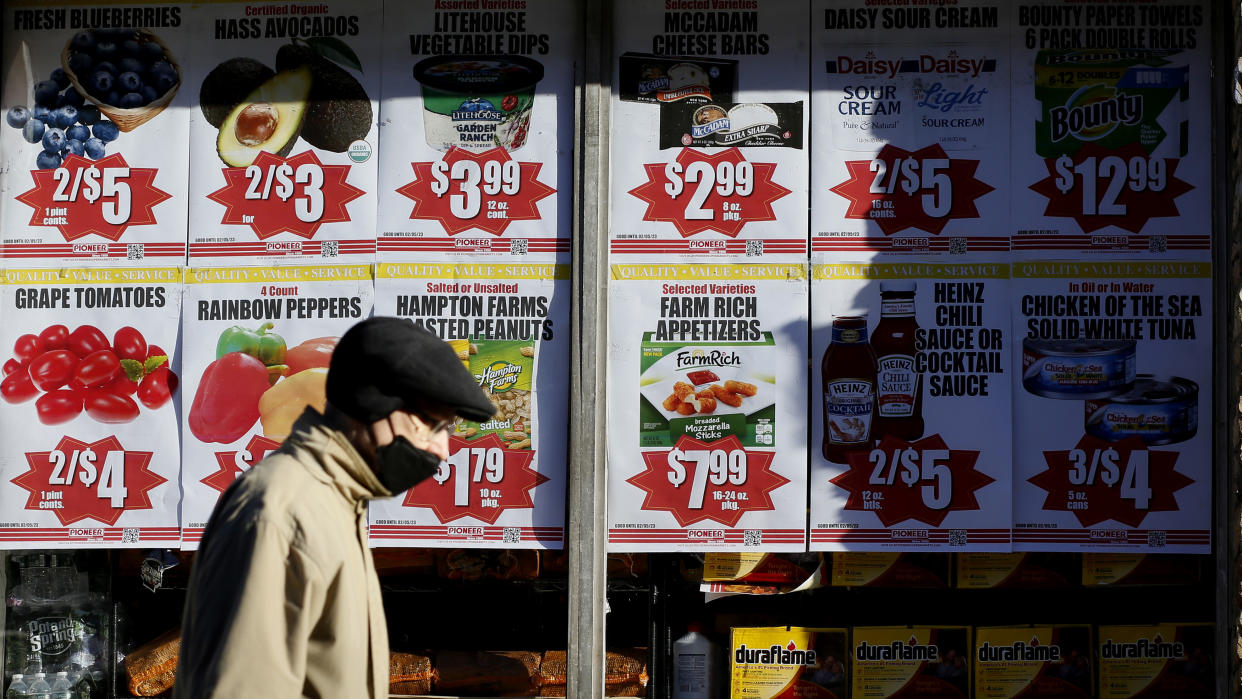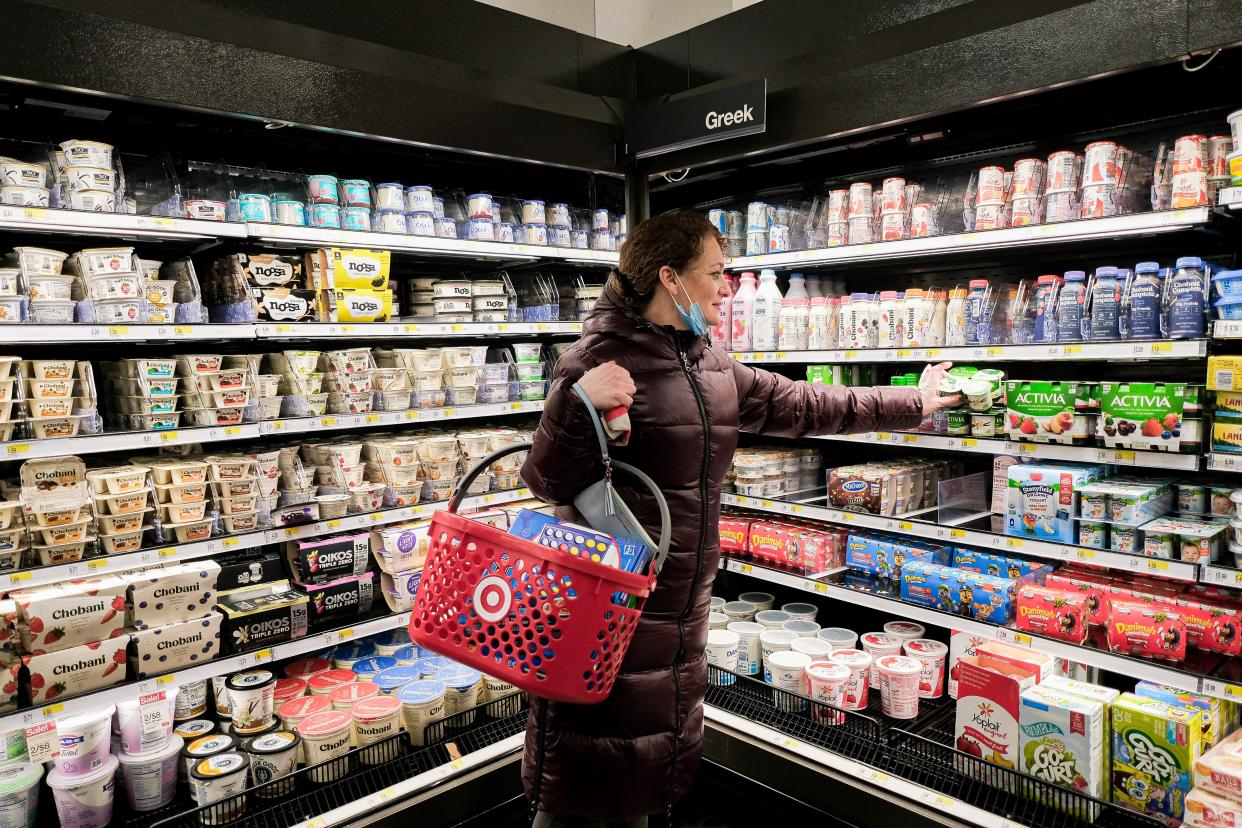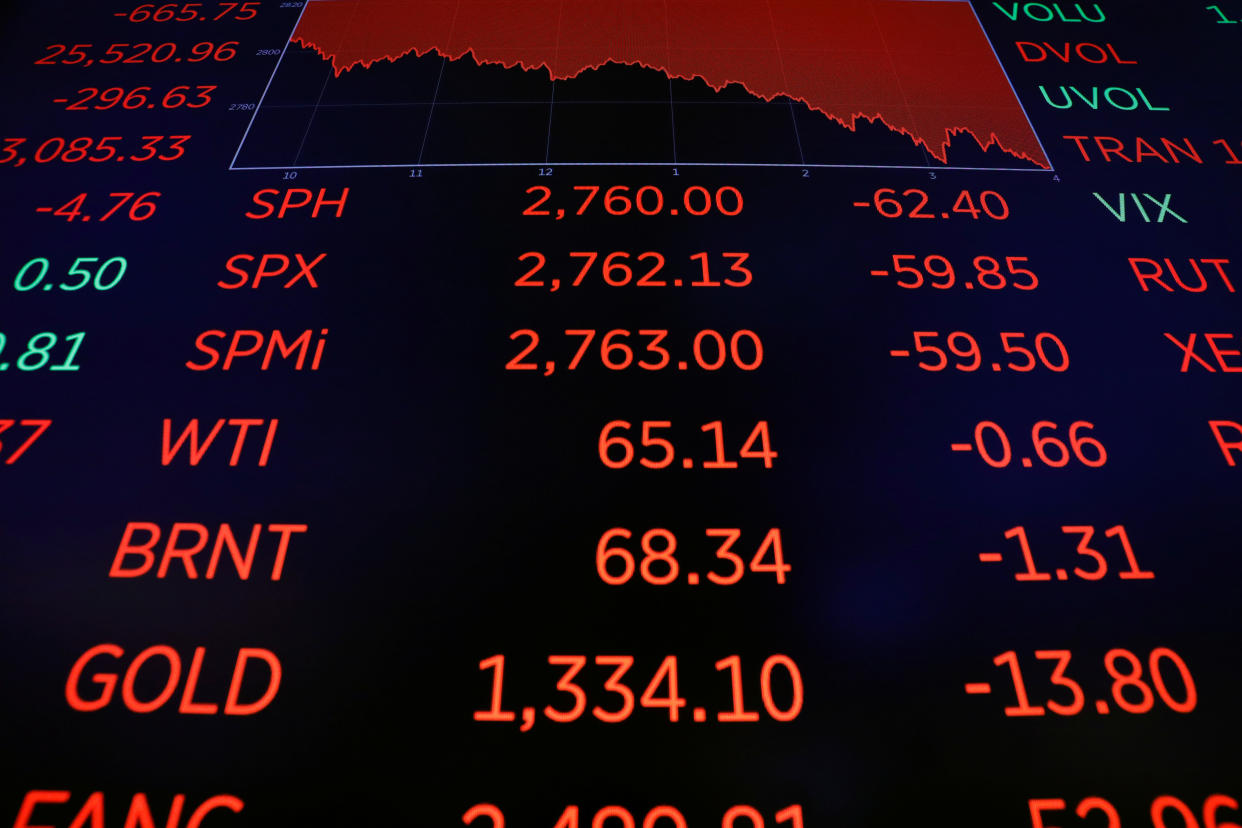Half of Americans feel worse off financially, highest since 2009
Americans haven’t felt this lousy about their finances since the Great Recession.
When asked about their financial circumstances, half of Americans said they were worse off now than they were a year ago, according to a new Gallup poll conducted in January of 1,011 adults aged 18 and older. The only other instances that half or more felt this way was in 2008 and 2009, according to the pollster, which has asked this question since 1976.
The pessimism largely came from those in the lowest-earning and highest-earning tiers, according to the poll, the groups most likely to feel the effects of runaway inflation and the swooning stock market, respectively.
The silver lining? Americans feel like next year, their circumstances will get better, according to the poll.

‘How is this going to get better?’
A larger share of lower-income Americans were pessimistic about their money situation this year.
The survey found that 61% with household income below $40,000 said their financial situation had crumbled in 2022, versus 41% last year. Just over a quarter indicated they were on better financial footing, according to the survey.
The cost of daily living is taking a toll on finances for many Americans, but “the inflation issue is just magnified for low-income people,” Joanna Ain, associate director of policy for nonprofit Prosperity Now, told Yahoo Finance. “They’re feeling it on a day-to-day basis.”
“During the pandemic for better, for worse, we as a country were supporting people in a bunch of different financial ways,” she said. “And then those are gone now. It's not like those were lost, and prices came down, and things went back to normal. Things continue being difficult for families.”
Ain is referring to the pandemic enhancements for the Earned Income Tax Credit (EITC), for example, which ramped up the tax break’s eligibility. That expired for the 2022 tax year, leaving millions of Americans either unable to claim it or qualifying for a reduced amount.

And the amounts of the Child Tax Credit (CTC), Earned Income Tax Credit (EITC), and the Child and Dependent Care Credit have now returned to pre-COVID levels. The CTC, in particular, was a big help because half of the credit was doled out in monthly installments for the last six months of 2021.
“We saw a program that almost cut child poverty in half and then we didn't continue it. That’s significant.” Ain said. “People are feeling the tightness in their wallets, the tightness in their budget, and I think that increase in grocery bill is palpable. People are thinking how is this going to get better? I know stock prices are important, but that's not something that impacts our low-income families.”
‘A wake-up call’
But that uncertain stock market is clearly a sore spot for those in the higher income cohort, as the survey results showed.
Overall, 43% upper-income Americans, those with annual household income of $100,000 or more, said they’re worse off than said so last year, according to the Gallup findings.
“Last year’s losses in both stocks and bonds served as a bit of a wake-up call for some of our clients,” Melody Evans, a wealth management advisor at TIAA, told Yahoo Finance. “By 2022, they had experienced a decade of very low volatility and significant annual returns. It is hard not to get used to such an environment. For some perspective, prior to the pandemic, Americans were almost three times as likely to say they were better off (59%) as worse off (20%), according to Gallup’s annual findings.
“What we are hearing from our higher-income clients is their portfolios are down the most since 2008 in dollar terms, and it was a big number,” Lisa A.K. Kirchenbauer, a certified financial planner and president of Omega Wealth Management, told Yahoo Finance. “Everything costs more and that feels as real, or even more real, than the portfolio going down. While incomes supposedly are up, for most people — including high-income folks — expenses are up even more. It's enough to make even higher income people feel less well off.’

And for those nearing retirement, things can feel especially shaky.
“It can feel scary retiring into a possible recession and down market,” Kirchenbauer added.
Last fall, nearly 2 in 5 of the 1,429 retirees The Senior Citizens League surveyed reported that their standard of living had worsened since March of 2020, and they had drawn down savings more rapidly than planned. Roughly the same percentage indicated that they had no savings, had taken on debt, and have turned to low income assistance programs.
And while the biggest increase in Social Security benefits in four decades is a plus for retirees grappling with inflation, the 8.7% bump in monthly payments this year may not cut it.
“More than half (54%) of older adults participating in a new survey we’re conducting so far say they worry that their 8.7% cost-of-living adjustment will continue to fall short of the rising prices,” Mary Johnson, a Social Security policy analyst for The Senior Citizens League, told Yahoo Finance.
“The cumulative effect of inflation over the past three years will be very difficult to dig out of, even as inflation moderates, making it extremely difficult for many lower and modest income retirees to recover from this period.”
Americans are upbeat about their finances for the coming year
Still, Americans appear to be resilient, with most of Gallup’s respondents expecting a brighter future ahead.
Roughly, 6 in 10 of those surveyed expect to be better off a year from now. And that upbeat attitude for a year down the road is consistent across income level. That translates to .62% of lower-income Americans, 60% of middle-income Americans and 59% of upper-income Americans expect to be better off a year from now.

Fewer than one in three (28%) Americans forecast that they will be worse off.
While there may be a marginal feeling of uneasiness about the economy ahead, it’s manageable for well-heeled Americans.
“Our clients are probably on the upper end of the income scale, and they're obviously concerned about what happened last year in the stock market,” Eric Bailey, a certified financial planner at Bailey Wealth Advisors, told Yahoo Finance.
“What we are hearing and what we're seeing is that those folks that are above the middle income group are still doing well. Their confidence factor is maybe not as high as it would've been a year and a half ago, but they're not concerned about running out of money.”
Bailey noted that their cash positions remain large and they haven’t run up credit card debt. They’re earning higher interest on their savings and many have mortgages with rates as low as 3% — if they have mortgages at all.
In essence, for the loftier income tier, it’s all systems go, which is reflected in the rosy Gallup findings for their financial futures.
“The feedback we're getting from our clients is that everybody's still planning to travel. People are still able to help their kids with, or grandkids, with college education. They're doing projects at their home, new kitchens, new roofs, in some instances buying second homes because prices have come down,” Bailey said. “We don't see or hear anything that suggests there's this gloom and doom. There is just a little bit of apprehension about ‘could we see another year in the stock market like we did last year?’
Kerry is a Senior Reporter and Columnist at Yahoo Finance. Follow her on Twitter @kerryhannon.
Read the latest financial and business news from Yahoo Finance
Download the Yahoo Finance app for Apple or Android
Follow Yahoo Finance on Twitter, Facebook, Instagram, Flipboard, LinkedIn, and YouTube
